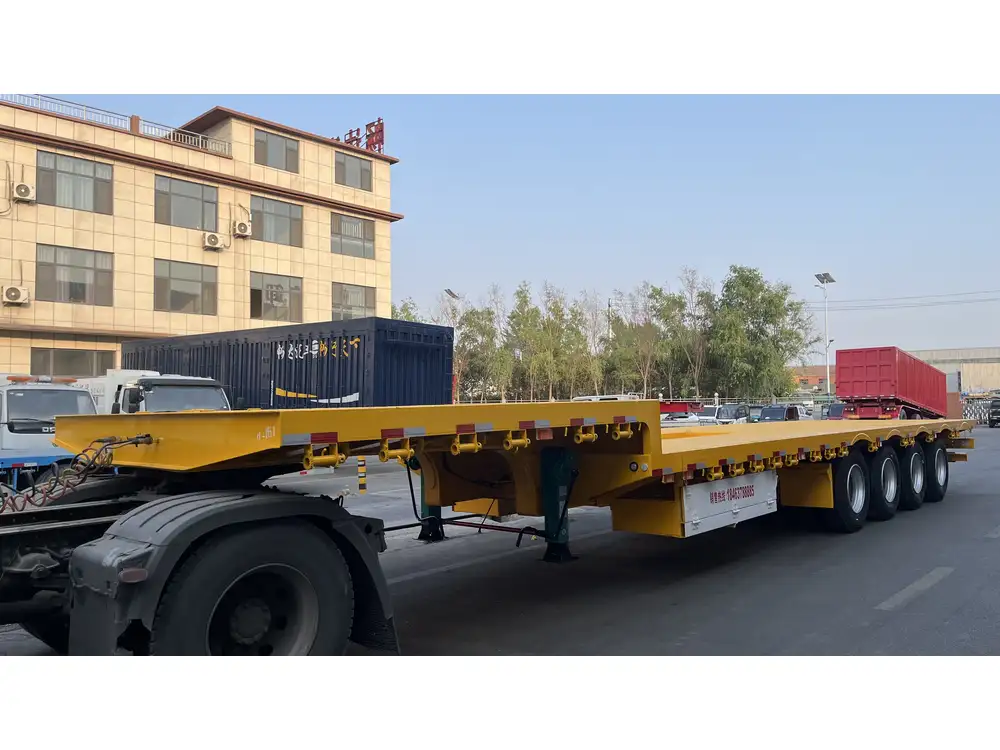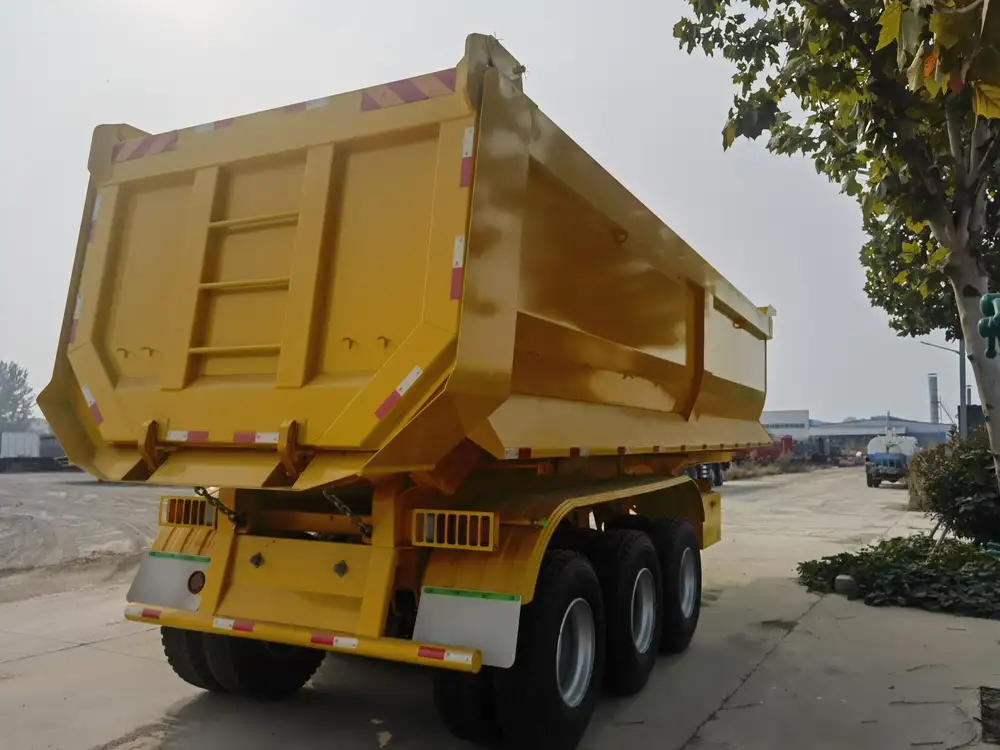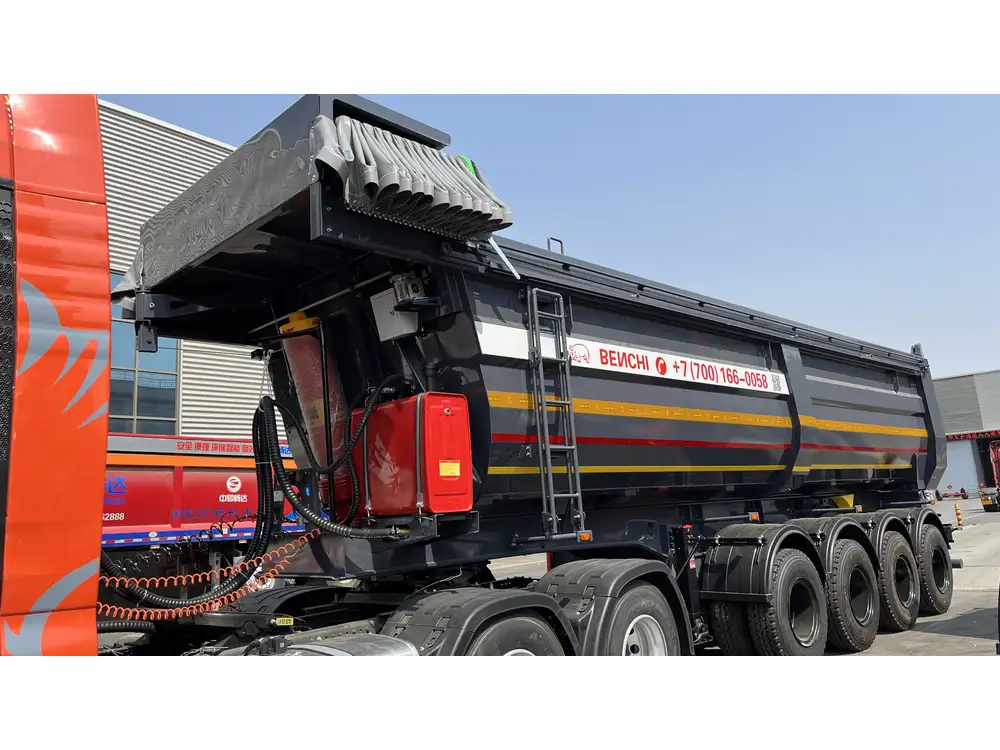When it comes to construction, landscaping, or moving debris, the utility of a dump trailer is unparalleled. For individuals and businesses alike, understanding the costs associated with renting a dump trailer can be pivotal. This article dissects the intricacies of dump trailer rental, exploring factors influencing costs, rental durations, and tips for maximizing value while addressing potential user inquiries.
Understanding Dump Trailers
What is a Dump Trailer?
A dump trailer is a versatile hauling tool used to transport loose materials such as dirt, gravel, debris, and other related items. Unlike traditional trailers, dump trailers feature a hydraulic lift system that allows the trailer bed to tilt, facilitating easy unloading at job sites.

Types of Dump Trailers
| Type | Description | Common Uses |
|---|---|---|
| Single Axle | Lightweight, easy to maneuver. Ideal for small jobs. | Landscaping, small construction tasks. |
| Tandem Axle | Offers greater capacity and stability. Suitable for heavier loads. | Larger construction projects, debris removal. |
| Gooseneck | Attaches to a truck’s gooseneck hitch. Provides increased maneuverability. | Heavy-duty hauling for contractors. |
| Enclosed | Shields contents from the elements while transporting. | Landscape supplies, sensitive loads. |
Understanding these different types of dump trailers can help narrow down choices based on specific needs and job requirements.
Cost of Renting a Dump Trailer
Factors Influencing Rental Costs
The rental cost of a dump trailer can vary significantly based on several factors:
- Type of Trailers: Specialized trailers such as gooseneck or enclosed units typically attract higher rental fees due to their capabilities and design.
- Rental Duration: Short-term rentals are often charged at a higher daily rate compared to long-term rentals, which can offer discounts.
- Location: Local market demand can influence prices. Urban areas tend to have higher rental costs compared to rural zones.
- Rental Company: Established companies with premium services charge more than smaller, local shops.
- Additional Fees: Some rental agreements may include charges like insurance fees, towing vehicle requirements, or deposit refunds.

Average Rental Costs
Renting a dump trailer generally ranges from $50 to $150 per day. Below is a breakdown based on trailer types:
| Trailer Type | Daily Rate ($) | Weekly Rate ($) | Monthly Rate ($) |
|---|---|---|---|
| Single Axle | 50 – 75 | 200 – 300 | 600 – 800 |
| Tandem Axle | 75 – 125 | 400 – 600 | 1,200 – 1,600 |
| Gooseneck | 100 – 150 | 500 – 1,000 | 1,500 – 2,500 |
| Enclosed | 75 – 150 | 350 – 700 | 1,000 – 1,800 |
Short-Term vs Long-Term Rentals
When to Choose Short-Term
Short-term rentals are ideal for one-time projects or emergency needs. If you find yourself in a pinch, such as a debris clean-up after unexpected weather events, short-term rentals can provide a quick solution without a significant upfront investment.

When to Consider Long-Term
For continuous jobs, such as ongoing construction or renovation projects, long-term rentals can significantly reduce overall rental costs. Rental companies often provide incentives for extended use, which can lead to substantial savings in time and money.
Tips for Renting a Dump Trailer: Maximizing Value
Engaging with a dump trailer rental service requires more than merely signing a contract. Here’s how to ensure you receive optimum value for your rental:
1. Plan Your Project Thoroughly
Before renting, detail your project requirements. Assess what materials need to be transported and the total weight. Choosing the right size and type of trailer can prevent unexpected complications, including needing a larger trailer midway through the rental period.

2. Compare Rental Companies
Engage in thorough market research. Compare prices, services offered, and reviews from previous users. Opt for companies with established reputations for prompt service and maintaining their equipment.
3. Read the Terms of the Rental Agreement
Understand the rental agreement fully! Special attention should be paid to policies on damage coverage, mileage restrictions, and late return policies to avoid hidden costs.
4. Inspect the Trailer Before Renting
Prior to finalizing the rental, inspect the trailer. Check for any pre-existing damage and ensure functioning hydraulic systems, lights, and brakes. This step can help prevent potential charges upon return.

5. Consider Load Limits
Each trailer has specific weight limitations. Exceeding these can lead to excessive repair costs and potential liabilities. Adhere closely to the guidelines provided by the rental company.
Additional Considerations: Conversions and Equipment
Towing Vehicle Specifications
When renting a dump trailer, make sure your towing vehicle meets specific requirements. The following table illustrates suitable towing capacities based on trailer types:
| Trailer Type | Minimum Towing Capacity (lbs) | Recommended Vehicle |
|---|---|---|
| Single Axle | 3,000 | Mid-size Truck, SUV |
| Tandem Axle | 5,000 | Full-size Truck |
| Gooseneck | 10,000 | Heavy Duty Truck |
| Enclosed | 5,000 | Full-size SUV, Truck |

Safety Equipment
Safety should remain a priority during the transportation process. Required tools and equipment include:
- Safety Chains: These provide an additional layer of security during tow.
- Brake Controller: Ensures that the trailer brakes activate simultaneously with the vehicle brakes.
- Trailer Hitch: Compatibility is crucial; improper hitches can lead to accidents.
Frequently Asked Questions
How Much Can I Expect to Pay for a Damage Deposit?
Typically, rental companies require a damage deposit ranging from $100 to $1,000, which varies by the rental value of the dump trailer. This deposit is refundable upon proper return of the equipment.

Can I Use a Dump Trailer for Heavy Equipment Transport?
While dump trailers are predominantly for loose materials, they can also transport certain types of equipment, depending on the weight limits and trailer capacity. Always consult with the rental company about specific uses.
Do Rental Companies Provide Insurance for Dump Trailers?
Many rental companies offer insurance options. However, check whether your personal auto insurance includes rental agreements, as this may negate the need for additional coverage.
Conclusion: Making the Most of Your Dump Trailer Rental
Renting a dump trailer can serve as a practical solution for various hauling needs, provided that you navigate the costs and logistics effectively. By understanding the factors influencing rental prices, selecting the appropriate trailer type, and adhering to best practices, you can maximize the benefits while minimizing expenses.
Take the time to compare options and prepare adequately for your project. In doing so, you’ll not only streamline your operation but also ensure that your investment yields the highest potential returns. With careful consideration, your next dump trailer rental can become a pivotal asset in your project’s success.
For optimal results, engage with reputable rental companies and consult knowledgeable staff to find the best solutions tailored to your specific requirements.



